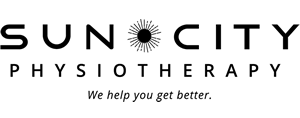
Thinking of Dieting?
Thinking of Dieting?
Happy New Years! Thinking of going on a diet in 2024? Read this, and think again:
At this time of year, many folks are considering assessing their nutrition and looking to improve their eating habits or relationship with food. If you are looking to improve your energy levels and develop or reinforce healthy nutrition habits for the new year, this article is for you!
My top 3 recommendations to clients are as follows (and these may be surprising):
1) Get adequate sleep!
How many hours are you sleeping each night? Is it a good quality sleep or are you tossing and turning throughout the night, waking up feeling sluggish or not well rested? A good sleep hygiene routine (along with managing your stress levels) is paramount to a good quality sleep, which impacts our digestion and metabolism. It may seem odd that I talk about sleep with clients when they are seeing me for nutrition support, but it is very much related! Try removing electronics/screens for 30 minutes before bed. Dim the lights, read a book or do a skin care routine- whatever it is that helps you be mindful and present before falling asleep. Your quality of sleep will set the tone for your nutrition choices and cravings the next day.
2) Stay hydrated throughout the day.
Again, this one sounds simple, but the effects of dehydration directly affect our energy levels, concentration, and performance in activities throughout the day. Ensure you are drinking enough. Consider walking around with a water bottle, carrying one to work, keeping one in your car, even bringing one into the grocery store while you’re shopping. This can be helpful in increasing your fluid intake and meeting your hydration needs.
3) Eat enough throughout the day to meet your nutritional needs.
This is my big recommendation. A lot of us are focused on losing weight in the New Year, and everyday throughout the year for that matter. This makes sense considering how engulfed we are by diet culture, and the media is telling us that a smaller body is more valuable than a larger body – which is extremely disheartening and untrue.
With the focus being on weight loss, a lot of people start over-restricting their intake to cut calories and consequently under-eat throughout the day. This may look like skipping breakfast and just having a coffee, or having a small lunch to stave off the hunger so you can “save up” your calories and have a more indulgent dinner and evening snack with wine. This is disordered eating, and if you do it, or have done it in the past, you are not alone. It is extremely common and rooted in diet culture. The great news is you do NOT need to do this in order to achieve your health goals or feel good in your body. The funny (or not so funny) thing is, if we under-eat and over-restrict for too long, our bodies will adapt by lowering our resting metabolic rate so we actually burn fewer calories at rest. This can also cause hormone imbalances, resulting in water retention and fat storage.
So instead of going on a diet this New Years, ‘cutting carbs’ or under-eating, I suggest seeing a Registered Dietitian. A dietitian can help you achieve your goals in a healthy, sustainable way, where you actually get to eat what you want when you want without having to worry about it. It’s called “Food Freedom” – and I want everyone to have this!
Feel free to email me: mwood@suncityphysiotherapy.com or call Sun City Physiotherapy to book an appointment so we can get started on making 2024 your best year yet!

Madison Wood is a Registered Dietitian dedicated to providing compassionate, individualized nutrition care for the past 7 years.
She holds a BSc with Honours Specialization in Foods and Nutrition from Western University in London, Ontario and completed her comprehensive post-graduate dietetic internship at the Northern Ontario School of Medicine.
When Madison’s not helping clients achieve their nutrition goals, you can find her outside enjoying the beautiful Okanagan either hiking, mountain biking, or improving her sailing skills.
Accepting virtual and in-person nutrition counselling sessions for adults and children.
